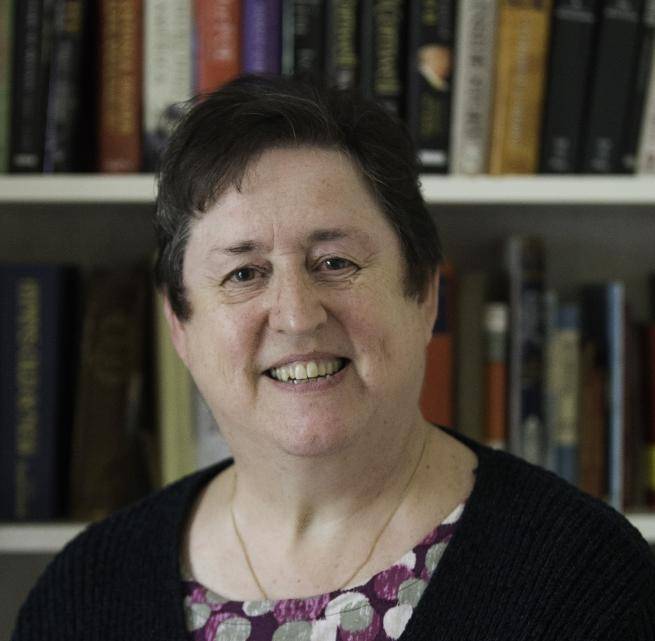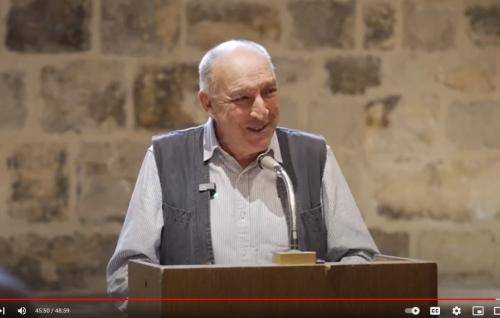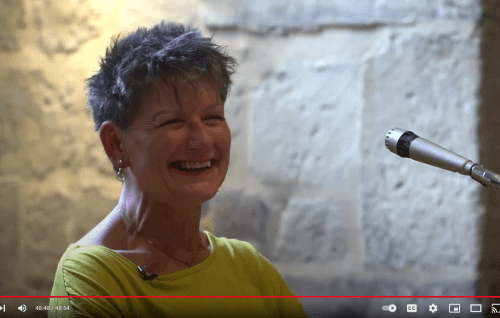A Spirituality of Summer
A Spirituality of Summer
Gemma Simmonds CJ reflects on a spirituality of the summer.
1. The Generosity of God
The liturgical life of the church tells us that times and seasons matter. Our whole cycle of life as Christians expressed in liturgy and sacrament offers embodied signs of the presence around us of the incarnate God, alive within our own bodies, in the bodies of others and within the whole of creation.
Liturgically, summer is ‘ordinary time’, when, after the Ascencion, we begin to come to terms with the absence of Jesus’ earthly body and get the measure of what ‘This is my body’ might mean in day-to-day terms.
Of course, it has a specific meaning in connection with the Eucharist and Jesus’ words at the Last Supper. But part of what we might call a ‘spirituality of summer’ is an invitation to a more contemplative approach to the life of our senses, noticing more acutely the world as it comes alive all around us.
Summer reminds us of the insane generosity of God. Trees and plants flower and fruit in a way that can seem almost criminally wasteful. Neither animals nor humans can eat and use all the fruit that emerges from the trees and bushes. If a spirituality of summer tells us anything, it is that the fruition of the earth, the fruit of time spent contemplatively going about our daily tasks, is always going to be more than we can calculate and make use of in obvious ways.
A sense of ‘the sacrament of the present moment’ can liberate us from the tyranny of time, dominated by market forces and the idolization of work and of productiveness as value. The God whose times and seasons are full of generous wastefulness invites us in the summer, perhaps more vividly than at other times, to hear ‘this is my body’ as an invitation to savour the beauties of creation.
2. Flowering and Fruition
One of the delights of summer lies in being able to shed some of the protective layers between our bodies and the cold of winter. Summer becomes a time for reconnecting with the natural light and with the elements. ‘This is my body’ becomes an invitation to engage more deeply with the incarnation, with God embodied in our human, bodily experience and encounters.
In the Ignatian spiritual tradition, the ‘application of the senses’ encourages us to pray with our bodies, savouring and testing what surfaces in prayer through the medium of our senses. It’s a more contemplative type of prayer that allows the body to verify what the mind and heart have only groped towards. The warmth and light of summer bring so much enrichment in sight, sound, scent, touch and taste. Perhaps part of the spirituality of summer is an invitation to a more contemplative approach to ordinary things: the feel and scent and taste of food, of flowers and plants, sea air, sunlight and warmth, fresh wind and the sound of birds and children, cities, streets and gardens unusually alive.
But if bodies come alive in summer, they can also become problematic. An entire fashion, beauty and advertising industry exists whose skill in making us buy products lies in causing anxiety and dissatisfaction about our bodies. Every aspect of our body becomes a potential fashion threat. ‘This is my body’ becomes an invitation to live more at ease within our enfleshed selves. A positive embrace of the bodily, the incarnate, frees us from negative judgment of the flesh, born of fear and self-hatred. We learn to thank God for what is, here and now, for the flowering and fruition of our own bodies and lives, whatever their stage and shape.
3. Summer showers
Sometimes it seems as if we’ve only to think the words ‘summer’ or ‘Bank Holiday’ here in the UK for it to start tipping with rain.
The British have an admirably resilient capacity for sitting under canvas or in seaside shelters, resolutely munching on their picnics while the rain pours down around them. It’s part of our national psyche. It’s understandable that we should feel disappointed when rain stops play at cricket matches or washes out garden fêtes and al fresco meals. But a summer shower of rain can be a wonderful thing if we allow ourselves to savour the scent of the warm earth immediately after a shower, the possibility of a rainbow, the sight of birds descending to catch the worms that rise to the surface.
We won’t see the immediate effects of rain on plants, but we know how desperately necessary rain is to keep the earth alive. The prophet Isaiah uses the image of rain to describe the effect on us of God’s word when we allow it to get to work in us: ‘For as the rain and the snow come down from heaven, and do not return there until they have watered the earth, making it bring forth and sprout, giving seed to the sower and bread to the eater, so shall my word be that goes out from my mouth; it shall not return to me empty, but it shall accomplish that which I purpose, and succeed in the thing for which I sent it.’ [Is. 55:10-11 NRSV]
God’s word may come to us as invitation, as challenge or warning, but it has the capacity to bring us to life and to enable us to flower and grow, if only we are willing to allow God’s rain to fall.
4. The sacrament of the present moment
Jean Pierre de Caussade, an eighteenth-century Jesuit spiritual writer, wrote about ‘the sacrament of the present moment’.
One theological definition of a sacrament is ‘a sign which makes real what it signifies’. In what way does summer invite us particularly to live in the present moment in such a way that what it signifies becomes real to us?
Post-Easter and the big liturgical feasts, the summer period of ‘ordinary time’ is when we set about making sense of the earlier liturgical seasons, walking by faith and not by sight, growing into a deeper awareness of how the everyday is full of signs of the presence of the risen Jesus in encounters that ‘make our hearts burn within us’ and in breaking bread together at a leisurely pace.
In summer, time seems to have an altogether different rhythm. We reconnect with the natural light, with greater opportunities for being outdoors, relaxing into the present, lingering over meals and encounters, savouring the moment.
Summer holidays can take us into different environments, giving opportunities for exploration and expansion of horizons. ‘This is my body’ becomes an invitation to experience God’s presence in human relationships and in the response of our bodies to the sun, bringing us especially alive.
St Paul speaks of the power of the risen Christ liberating all creation from being ‘subject to decay’ [Romans 8:18-29]. All creation shows the pattern of death and resurrection and reassures us with hope that God’s power is a force for life, despite ageing, sickness and the accidents that can befall us. We are intimately bound with creation and cannot flourish as human beings in isolation from it. The closer we come to creation, the more aware we become of the constant presence of our Creator, even when he walks unnoticed among us.








